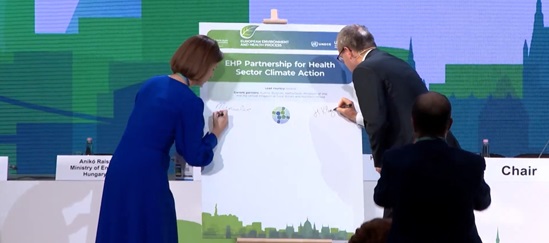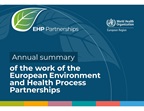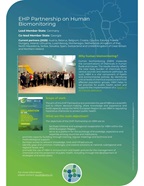
EHP Partnership on Human Biomonitoring
The European Environment and Health Process (EHP) Partnership on Human Biomonitoring (HBM), or HBM Partnership, launched at the Seventh Ministerial Conference on Environment and Health in 2023, currently involves over 20 countries from western, central and eastern Europe. Germany leads this initiative together with Georgia.
EHP Partnerships are a thematic voluntary cooperation mechanism among Member States and other stakeholders who agree to work together to facilitate the implementation of Conference commitments and accelerate progress in certain areas.
Aims
The HBM Partnership aims at extending the use of HBM to inform decisions for regulating hazardous chemicals and protecting public health. It serves as a platform to share knowledge, information, experiences and expertise, supporting countries in establishing and conducting HBM surveys.
Partners
Current partners include Austria, Belarus, Belgium, Croatia, Czech Republic, Estonia, France, Georgia, Germany, Hungary, Ireland, Lithuania, Luxembourg, Montenegro, the Netherlands (Kingdom of), North Macedonia, Serbia, Slovakia, Spain, Switzerland and the United Kingdom of Great Britain and Northern Ireland. WHO/Europe contributes to the Partnership by providing guidance and expertise and building capacity, including through trainings organized back-to-back with Partnership annual meetings to increase HBM capacity in the country hosting the meeting.
About HBM
In the WHO European Region and globally, promoting the use of HBM is a recognized priority to ensure the sound management of chemicals. HBM programmes can provide data on exposure levels, allowing, for example, the identification of the most exposed population groups or the analysis of trends of exposure, which are crucial for the development of risk protection measures. However, such programmes are not systematically established and capacity for HBM varies widely among countries at both the global and regional level.







